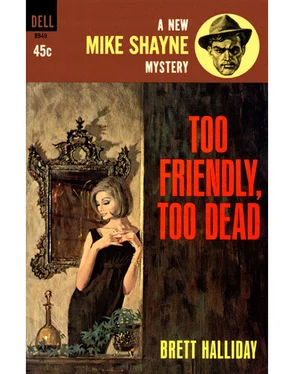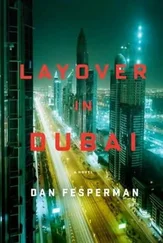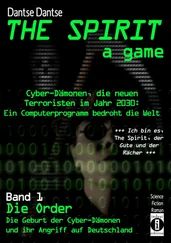Dan Fesperman - The Double Game
Здесь есть возможность читать онлайн «Dan Fesperman - The Double Game» весь текст электронной книги совершенно бесплатно (целиком полную версию без сокращений). В некоторых случаях можно слушать аудио, скачать через торрент в формате fb2 и присутствует краткое содержание. Жанр: Шпионский детектив, на английском языке. Описание произведения, (предисловие) а так же отзывы посетителей доступны на портале библиотеки ЛибКат.
- Название:The Double Game
- Автор:
- Жанр:
- Год:неизвестен
- ISBN:нет данных
- Рейтинг книги:3 / 5. Голосов: 1
-
Избранное:Добавить в избранное
- Отзывы:
-
Ваша оценка:
- 60
- 1
- 2
- 3
- 4
- 5
The Double Game: краткое содержание, описание и аннотация
Предлагаем к чтению аннотацию, описание, краткое содержание или предисловие (зависит от того, что написал сам автор книги «The Double Game»). Если вы не нашли необходимую информацию о книге — напишите в комментариях, мы постараемся отыскать её.
The Double Game — читать онлайн бесплатно полную книгу (весь текст) целиком
Ниже представлен текст книги, разбитый по страницам. Система сохранения места последней прочитанной страницы, позволяет с удобством читать онлайн бесплатно книгу «The Double Game», без необходимости каждый раз заново искать на чём Вы остановились. Поставьте закладку, и сможете в любой момент перейти на страницу, на которой закончили чтение.
Интервал:
Закладка:
He proceeded to outline a complicated sequence of tram rides, switched taxis, and brisk walks through crowded stores that would eventually take me to the train station. Then he checked his watch.
“You can still make the three-seventeen.” He handed me the plainest business card I’ve ever seen. No name, no title, no address. Just a number for a cell phone, written across the middle.
“To be used only in an emergency,” he said. “Ask for Heinz.”
“As in Klarmann.”
“Good. You’re not completely hopeless.”
He put a few crown notes on the table, then picked up his cane and stood to leave.
“Your life as a more polished operative, of the sort that might once have made Richard Folly proud, begins now,” he said.
I gathered up my bag, checked the bill to make sure he had left enough for both of us, then turned to say good-bye. But Lothar, who had been playing at this far longer than I, was already gone.
29
I hadn’t been to Budapest since I was eleven. My three years there were like a mirage, quivering on the horizon of that long-ago era before girlfriends, running, and the imaginary worlds within Dad’s books.
It was the one European home that initially felt foreign to me, probably because we moved there from Washington. To a kid fresh out America the city was old and oppressive, smelling of coal smoke and cabbage. The cars were clunky. The boys wore boxy shorts and bad haircuts. Television flickered with unfamiliar faces speaking a harsh new tongue, and none seemed half as welcoming as Jackie Gleason or even Ed Sullivan.
In my only memory from our first week, I am wearing a cherished coonskin cap straight out of Disney. Dad and I are waiting for a tram when a foul odor blows up from the street, and I wrinkle my nose in disgust.
“The sewers,” Dad explains. “They’re very old here.”
As I grew familiar with these gusts of ill wind in city after city, I came to regard them as the labored breath of Europe’s past, struggling up from its mass grave beneath the streets. When I told this to my father, years later, he turned pensive.
“Budapest cast a shadow over you before we even got there. You were born in Vienna the week the Red Army rolled into Hungary. Our embassy was the main listening post, and everyone was devastated. We’d egged the poor bastards on, then none of us lifted a finger to help. That’s when it finally sank in that, in Europe at least, all the fighting from then on was going to be done by spies and propagandists.”
And, as I know now, Budapest was where I began my career as a courier for Edwin Lemaster. My unwitting father saw those errands as a chance for me to earn pocket money while building up family goodwill at stores where he loved to browse. I wondered if they’d still be happy to see me.
The train stopped briefly in Vienna on its arc toward Budapest. I toyed with hopping off to look for Litzi, and took out my cheap new cell phone to call her before deciding against it. I played peek-a-boo awhile with a toddler in the next row, smiling as he squealed in delight. His beautiful Earth Mother mom took great joy in him, and I was glad Litzi had been spared this scene of maternal bliss. I missed her, then was angry with her. I again took out my phone, this time to call David. But by then we were deep in farm country and the signal failed.
After reaching Budapest well after dark, I caught a subway to the stop nearest Antikvarium Szondi and found a room in a small hotel. No one seemed to be following me yet, and to maintain my new advantage I holed up for the rest of the night, eating next door and retiring early. In the morning, after a cold breakfast and a pot of coffee, I set out for the bookstore. I arrived just as an older man who seemed to be the proprietor was cranking down the awning.
“Mr. Szondi?” I said, without even a clue as to whether he spoke English.
“Bela or Ferenc?”
“Whoever’s in charge.”
“Neither. Ferenc was until he became too ill. Bela took over a few years ago, but he sold the store to me last month. I am sorry if you have been inconvenienced.”
He folded away the crank handle, then squinted into the sun to observe me better.
“I am Andris Laszlo. And your name, sir?”
“Bill Cage. I’ve come over from the States.”
A look of mild concern flitted across his features.
“I was not expecting you so soon, although I suppose nothing should surprise me after what has been happening lately.”
“You were expecting me?”
He looked up and down the sidewalk, then back at me.
“Please come inside. I have something for you.”
He went behind the register and reached beneath it for a small parcel, book-sized, wrapped in butcher paper. Just like the good old days, although this fellow didn’t seem familiar with his role. There was no writing on the outside except the price, which was about the same as I’d paid in Vienna once you converted it to forints.
“It’s the way old Ferenc used to wrap everything,” Laszlo said. He seemed to be watching me closely. “They stopped using paper like that years ago.”
I paid the amount. He seemed reluctant to take the bills.
“Can you tell me how this reached you?” I asked.
He gave me a long look, then called out toward the back of the store.
“Lukacs!”
A harried-looking teen scurried out from the back, pushing curls out of his eyes. Laszlo barked an order in Hungarian, handed Lukacs the register key, and came out from behind the counter.
“Apologies for my rudeness, Mr. Cage, but this has been a strange business altogether, and I have been uncertain as to how I should deal with you when the time came.” He held out his hand in greeting, an American sort of proffer. I shook it firmly. “We should go somewhere to talk, especially if you intend to meet with the Szondis. No one should do that unawares.”
“More trouble than they’re worth?”
“The older one, Ferenc, no longer has his wits about him. His son, Bela-well, that is not a topic to discuss here.”
Laszlo said something more in Hungarian to the younger man, then led me outdoors, where he again looked in both directions.
“You have come here alone?”
“Why do you ask?”
“Others have been inquiring about you. It started a few days ago. Three different men, each acting as if he was your friend. But…” He shrugged, uncertain.
“Three? Was one of them a scruffy-looking German, maybe a few years older than you? Floppy hat, carries a cane?”
“No. But if I didn’t know better I would say you are describing the book scout Lothar Heinemann. I am told he was once a regular at this store.”
“Once?”
“He was banned by the Szondis, but I do not know why. If you see him, you must tell him he is again welcome at Antikvarium Szondi.”
“I doubt he knows the store has changed hands. He certainly didn’t mention it to me.”
“You have seen him?”
“Just yesterday, in Prague. He sent me.”
Lazslo shook his head, more confused than ever. He said nothing further until we reached our destination a few blocks later, the elegant Cafe Central, with windows facing onto both sides of a fashionable corner. Its chandeliers, high ceilings, and L-shaped floor plan stirred a memory from a long-ago Saturday with my father-him with his coffee, me with hot chocolate, both of us sipping to a morning serenade of chuffing espresso machines and the rustle of foreign newspapers.
It was too late for breakfast, too early for lunch, and there were few customers. We took a corner table in the smaller wing.
“My dad used to bring me here, but I don’t remember it being this fancy.”
“They have done many things to make it look nicer. Some of the older customers do not like it as much now. It feels too prosperous, too safe.”
Читать дальшеИнтервал:
Закладка:
Похожие книги на «The Double Game»
Представляем Вашему вниманию похожие книги на «The Double Game» списком для выбора. Мы отобрали схожую по названию и смыслу литературу в надежде предоставить читателям больше вариантов отыскать новые, интересные, ещё непрочитанные произведения.
Обсуждение, отзывы о книге «The Double Game» и просто собственные мнения читателей. Оставьте ваши комментарии, напишите, что Вы думаете о произведении, его смысле или главных героях. Укажите что конкретно понравилось, а что нет, и почему Вы так считаете.












